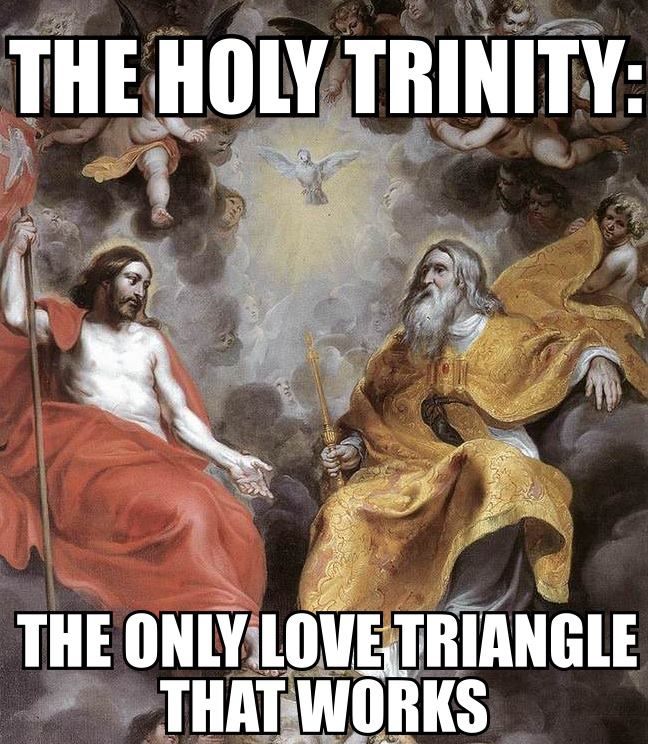|
Listen to this post:
|
I had the pleasure of meeting Jewish analytic theologian and philosopher of religion and rabbi Dr. Samuel Lebens (University of Haifa) at a summer seminar on faith in beautiful Bellingham, Washington in 2016. (This is where I presented this, a version of which was later published.)
One thing led to another, and our conversations resulted in this new paper, now published in the Journal of Analytic Theology: Lebens & Tuggy, “Dormant Dispositions, Agent Value, and the Trinity.” (Click on “pdf” below where it says “Full text” to get the actual article.)
Dr. Lebens’s name truly belongs first, as he contributed more of the writing and more of the ideas. It was a real pleasure to work through this with him.
Here’s the abstract:
In this paper we argue that the moral value of an agent is determined solely by their dispositions to act intentionally and freely. We then put this conclusion to work. It resolves a putative moral paradox first posed by Saul Smilansky, and it undermines a prominent line of argument for a variety of Trinitarian theology. Finally, we derive our conclusion about the moral worth of agents not only from our initial series of thought experiments, but also from Abrahamic theism itself. This means that Smilansky’s paradox can only possibly be rehabilitated by an atheist, and that the aforementioned line of argumentation for the Trinity is radically self-undermining, since it relies upon the denial of a corollary of Abrahamic theism.

In part, we show why no one ought to buy into arguments like this, which purport to show that that God couldn’t be unipersonal (i.e. be numerically the same as a certain self):
- Necessarily, God is perfect, and perfect in love.
- Necessarily, if God does not experience love of another, God is imperfect.
- Therefore, necessarily, God experiences love of another. [1, 2]
- Necessarily, it is possible that only God exists (i.e. that God does not create). [Given the orthodox doctrine that God’s creation was free]
- Necessarily, if unitarianism is true, there is no “other” in the godhead.
- Necessarily, if God alone exists and unitarianism is true, then God does not
experience love of another, and thus is not perfect. [2, 4, 5] - Therefore, necessarily unitarianism is false. [1, 6]

We argue that anyone, even a trinitarian, ought to reject premise 2. Check out the paper and see if you agree!
Along the way, in constructing a thought experiment, we mention the interesting fellow pictured here.
Be sure to check out Dr. Lebens’s many other interesting publications.

Hi Dr. Tuggie,
Thanks for your reply. If I read you aright, you seem to be suggesting that God’s concept of Himself is purely abstract, and hence not a “thing,” except in a very loose sense of the word.
Re God’s concepts of other entities, I quite agree with you that it would be absurd to collapse concepts of multiple contingent and complex entities into the super-concept of a single, necessary and simple Entity. (To be sure, some classical theists have tried to do that, but I would regard their attempt as pure gobbledygook.) These concepts are therefore merely thoughts in the Mind of God.
Re God’s concept of Himself: there seems something decidedly fishy about a concept that supposedly “measures up” to the entity it corresponds to (otherwise it would not be a proper concept of it at all), but that lacks defining features of that entity. Agency and personhood are surely defining features of God the Father, but if His self-concept lacks both of these features, then one wonders how it could be said to be a proper concept of God at all. (A unitarian might reply that being unbegotten is an essential feature of the Father, too, but I would reply that a concept, by definition, is incapable of instantiating this property. With action and personhood, it is by no means clear that this is the case.)
I freely grant that our ordinary concepts of things are causally inert, but it is another matter altogether to suggest that God’s concept of Himself has to be similarly limited. Cheers.
Hi Dr. Tuggie,
Interesting post. I think you and Rabbi Lebens have defeated the argument you criticize. What about this one, though?
1. Necessarily, God is an all-knowing Mind. (Unitarian assumption.)
2. Necessarily, God has a concept of Himself. (Follows from definition of “all-knowing.”)
3. Necessarily, a concept is something distinct from the Mind it originates from.
4. Necessarily, there exists something distinct from God’s all-knowing Mind.
5. Nothing exists necessarily except God. (Agreed by all monotheists.)
Where to from here? The only sensible move at this point, I would suggest, is to modify premise 1 to 1′:
1′. Necessarily, God is (at the very least) an all-knowing Mind.
Such a modification would leave open the possibility that the term “God” might include not only God’s Mind, but also anything that’s inseparable from this Mind but also distinct from it – such as His concept of Himself and (as Augustine argued) His love of Himself.
Thoughts?
Hi Vincent – I’m always up for a good argument.
I agree with 1. (But it is by no means only a unitarian assumption! Ever heard of perfect being theology?)
I agree with 2, as it follows from 1.
3 is ambiguous – a concept is a “thing,” but is not a substance/entity in addition to the one who has the concept. It is arguably an aspect or property or mode of the one who has it. If a “thing” is a concrete entity, then 3 is false. But let’s suppose 3 is true; in *some* sense a concept is a thing.
Then 4 would follow from 3. (I don’t think you mean 4 to be an independent premise like 1. Also, I think you mean: distinct from God.)
Now your 5 is surely NOT agreed to by all monotheists, as many monotheists believe in abstracta like sets or Platonic universals. If we go back to a stricter definition of “thing” – 5 may be true, but we’re trying to see if there is a valid and sound argument here using a very loose concept of a thing, where a mere concept will count.
Now, unless we absurdly collapse all concepts into God (i.e. “they” are all numerically one), then 5 will be false, given 4. I don’t see that this is going to get us anywhere, as far as making a sound argument. I’m not sure where you’re going with all of this.
Are 1-5 supposed to be a reductio ad absurdum of divine simplicity? So that we must say that God must be complex, one component being his mind, and others consisting of his many concepts? Or are you really trying to show that one God can’t be unipersonal? The idea that one God must contain a concept of himself and must love himself – that’s all compatible with unitarian theology, right?
Comments are closed.